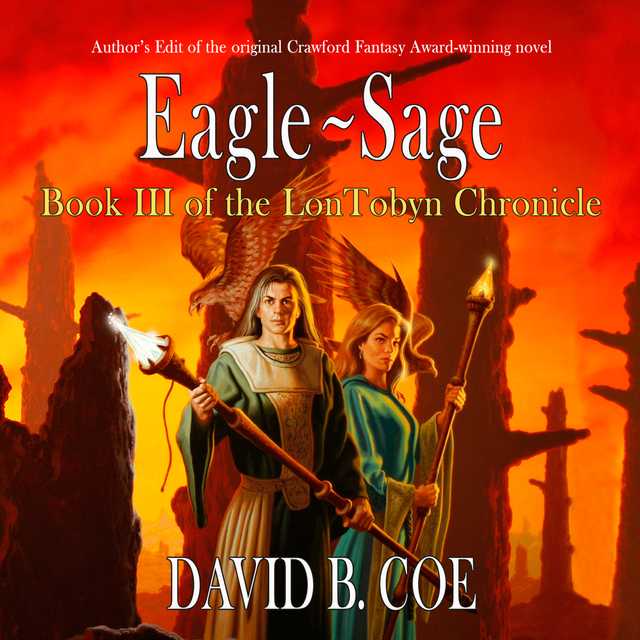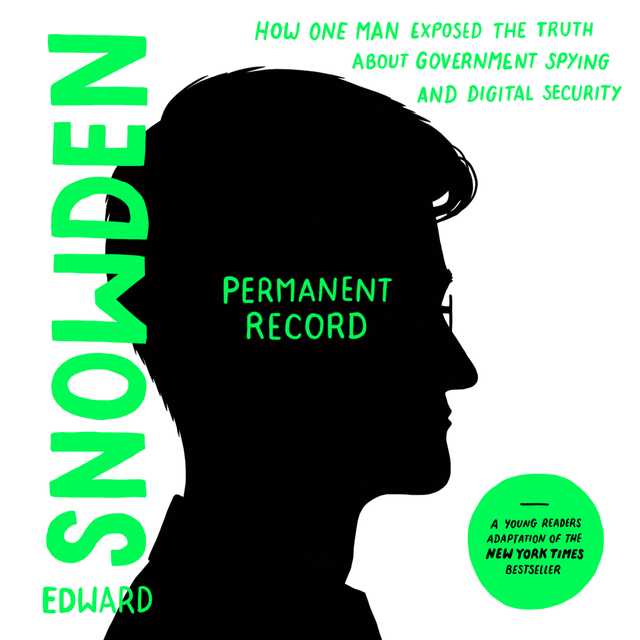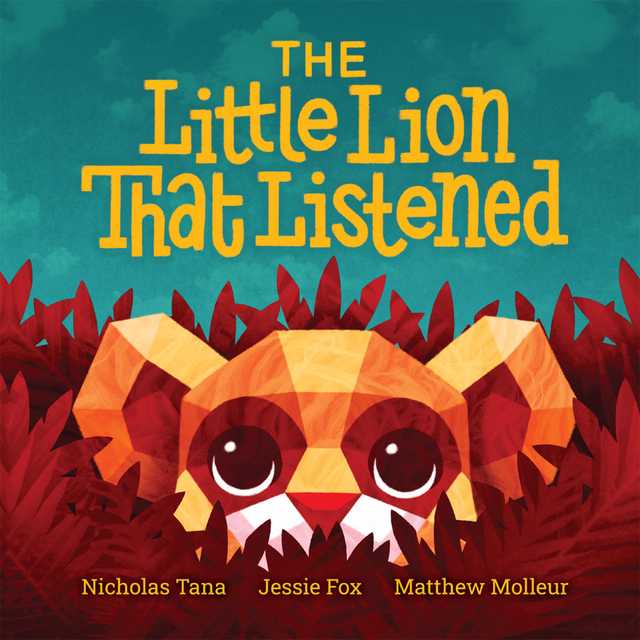Love Your Enemies Audiobook Summary
To get ahead today, you have to be a jerk, right?
Divisive politicians. Screaming heads on television. Angry campus activists. Twitter trolls. Today in America, there is an “outrage industrial complex” that prospers by setting American against American.
Meanwhile, one in six Americans have stopped talking to close friends and family members over politics. Millions are organizing their social lives and curating their news and information to avoid hearing viewpoints differing from their own. Ideological polarization is at higher levels than at any time since the Civil War.
America has developed a “culture of contempt”–a habit of seeing people who disagree with us not as merely incorrect or misguided, but as worthless. Maybe you dislike it–more than nine out of ten Americans say they are tired of how divided we have become as a country. But hey, either you play along, or you’ll be left behind, right?
Wrong.
In Love Your Enemies, New York Times bestselling author and social scientist Arthur C. Brooks shows that treating others with contempt and out-outraging the other side is not a formula for lasting success. Blending cutting-edge behavioral research, ancient wisdom, and a decade of experience leading one of America’s top policy think tanks, Love Your Enemies offers a new way to lead based not on attacking others, but on bridging national divides and mending personal relationships.
Brooks’ prescriptions are unconventional. To bring America together, he argues, we shouldn’t try to agree more. There is no need for mushy moderation, because disagreement is the secret to excellence. Civility and tolerance shouldn’t be our goals, because they are hopelessly low standards. And our feelings toward our foes are irrelevant; what matters is how we choose to act.
Love Your Enemies is not just a guide to being a better person. It offers a clear strategy for victory for a new generation of leaders. It is a rallying cry for people hoping for a new era of American progress. And most of all, it is a roadmap to arrive at the happiness that comes when we choose to love one another, despite our differences.
Other Top Audiobooks
Love Your Enemies Audiobook Narrator
Will Damron is the narrator of Love Your Enemies audiobook that was written by Arthur C. Brooks
Arthur C. Brooks is president of the American Enterprise Institute, where he also holds the Beth and Ravenel Curry Chair in Free Enterprise. He is the author of eleven books, including the #1 New York Times bestseller From Strength to Strength and bestsellers The Conservative Heart and The Road to Freedom. He is an op-ed columnist for The Washington Post, and host of the podcast The Arthur Brooks Show. Previously, he spent twelve years as a professional classical musician in the United States and Spain, including several seasons as a member of the City Orchestra of Barcelona. A native of Seattle, Brooks lives with his family in Bethesda, Maryland. In the fall of 2019, he will join the faculty of the Harvard Kennedy School and Harvard Business School.
About the Author(s) of Love Your Enemies
Arthur C. Brooks is the author of Love Your Enemies
More From the Same
- Author : Arthur C. Brooks
- The Road to Freedom
- The Conservative Heart
- From Strength to Strength
- Publisher : HarperAudio
- Abraham
- American Gods [TV Tie-In]
- Dead Ringer
- House of Sand and Fog
- Prey
Love Your Enemies Full Details
| Narrator | Will Damron |
| Length | 6 hours 55 minutes |
| Author | Arthur C. Brooks |
| Category | |
| Publisher | HarperAudio |
| Release date | March 12, 2019 |
| ISBN | 9780062908155 |
Subjects
The publisher of the Love Your Enemies is HarperAudio. includes the following subjects: The BISAC Subject Code is Commentary & Opinion, Political Science
Additional info
The publisher of the Love Your Enemies is HarperAudio. The imprint is HarperAudio. It is supplied by HarperAudio. The ISBN-13 is 9780062908155.
Global Availability
This book is only available in the United States.
Goodreads Reviews
Deb (Readerbuzz)
February 14, 2023
Let me start with a story.Back in 2001, I worked for the U.S. Census Bureau. Many people don't know that the Census Bureau does much more than simply count the number of people in the US every ten years. There are ongoing surveys that Americans are asked to participate in. During my years with the Census Bureau, I went to people's homes and asked a list of questions for various government surveys about employment, housing starts, income, health, and many other important topics. The specific data about each person is confidential and I took an oath to always keep the data confidential, and, of course, I will always do that.But the responses to one question on one health survey have always stuck with me. The question was: "Outside my immediate family, I have few close friends. True or false?" I administered this survey to exactly one hundred people and ninety-five said that statement was true.Let me restate this to clarify: Ninety-five percent of the people I interviewed said they have few close friends. This was astounding to me. I grew up in a small town, and, after I married, I raised my children in the same small town where my parents and in-laws and siblings and all of their extended families lived. I still live in this town. Over the years, I have met many, many people through my volunteer activities and work and church and my love of books outside my town as well, and I talk often to these people and I try to get together whenever I can. In short, I feel like I have many, many close friends.But most people do not feel this way. Most people in America feel alienated, friendless, lonely, alone. This continued to stick in my mind. In 2002, I read a book called Bowling Alone by Robert D. Putnam. Putnam gathered data from all across America and came to the same conclusions I'd come to after my stint with the Census Bureau: Most people in America feel alienated, friendless, lonely, alone. In more recent years I've become deeply disturbed by the climate here in America. During and after the last national election for president, I've been dismayed at the behavior of our leaders, especially our elected president. I was shocked when Donald Trump was elected as our president, and I've been horrified by the words he has spoken to others during his time as president. I don't watch television, but the bits of public life that have filtered down to me fill me with sadness and trepidation. What is going on in my America? I picked up three books at the recent library conference in Austin that I've been reading in tandem over the past weeks. These books have helped me understand the malaise of the American people. They have helped me think through ways that we can work to change the mood and behavior of the people of our country. The three books I read are: Alienated America: Why Some Places Thrive While Others Collapse by Timothy P. Carney Our Towns: A 100,000 Journey Into the Heart of America by James M. and Deborah Fallows Love Your Enemies: How Decent People Can Save America from the Culture of Contempt by Arthur C. Brooks What have I learned from reading these books? Timothy P. Carney looks at the hard, cold facts about America today, especially those who brought Trump into power. The places where Trump scored big are key to understanding why he was elected, Carney tells us. What are those places like? "Employment is far worse (in these places).... Death rates, especially death by suicide and overdose, correlated with Trump's best counties....Educational attainment is lower in Trump Country. More people are on unemployment. More people are on disability. These economic indicators are devastating, and crucial. But more telling are the social indicators. More men have dropped out of the workforce. Marriage rates are lower. Illegitimacy is higher. Divorce is higher....(Members of this group) said religion was very important to them, but...they were the least likely to go to church." I found this absolutely fascinating stuff. Trump scores well in places where people are unhappy and communities are weak. To add to the problems, the right, Carney tells us, has steadily worked for big businesses over small businesses, deeply weakening community bonds. On the other side, according to Carney, the left has been promoting ideas for years that also build community alienation, stressing overcentralized government programs that provide for the poor at the expense of individuals and local efforts to help the poor, and emphasizing individual freedoms at the expense of the stabilizing effects of marriage and family and church and community on each person. Arthur C. Brooks, in Love Your Enemies, shares the destructive power of contempt by citing the work of social psychologist and relationship expert John Gottman. Gottman, Brooks tells us, has studied thousands of married couples. After watching a couple interact for just one hour, Gottman can predict with 94 percent accuracy whether a couple will divorce within three years. What is this based on? It isn't the amount of anger a couple expresses, but, instead, it is the amount of contempt one member shows for another. And it is this contempt for one another in political matters that is currently making it impossible for opposing political parties to work together. So where are we now? Yelling and screaming at each other from positions far to the left or right of our common ground. Cutting off friendships and family connections based on these extreme political positions. In short, a mess. Here is where Arthur C. Brooks takes up the struggle. In his book, Love Your Enemies, Brooks writes: "Deep down, we all know that the polarization we are experiencing in our politics today is toxic. We hate the fighting, the insults, the violence and disrespect." Brooks shares a powerful story of the rare coming together of political opponents. Black Lives Matter protesters were confronting a group of Trump supporters in Washington, DC. Confrontation was rapidly accelerating into possible violence. But then the organizer of the rally unexpectedly offered two minutes of time to the leader of Black Lives Matter. And everything changed. See for yourself what happened: https://youtu.be/xoXwgfYAJFU. Wow, I thought. Wow. There is hope. Brooks shares four rules Gottman offered for bringing people back together. Because we are in such a desperate situation, and because these rules can have a dramatic effect on changing things, I'm sharing them here: "1. When others are upset about politics, listen to them respectfully. Try to understand their point of view before offering your own. Never listen only to rebut. 2. In your interactions with others, particularly in areas of disagreement, adopt the 'five-to-one rule,' which he gives couples. Make sure you offer five positive comments for every criticism. 3. No contempt is ever justified, even if, in the heat of the moment, you think someone deserves it. It is unjustified more often than you know, it is always bad for you, and it will never convince anyone that she is wrong. 4. Go where people disagree with you and learn from them. That means making new friends and seeing out opinions you know you don't agree with. How to act when you get there? See rules 1 to 3!" Brooks uses the rest of the book to expand upon these rules and share oodles of great advice for our world, and I'd encourage you to get the book and read it carefully for yourself.How does Our Towns fit into my study of America? James Fallows and Deborah Fallows spend four years and travel 100,000 miles to visit towns and cities across America to see what is going on in our country. Their book is also a book of hope. In every town and city where they find good things going on, they first see people working together for common goals, both economic and social, building up local businesses, building up local communities, building up schools, rethinking the whats and hows but keeping the whys, and taking pride in what is happening. The two Fallowses offer "10 1/2 Signs of Civic Success" as their takeaway from this adventure. Key to a local community's success is that "people work together on practical local possibilities, rather than allowing bitter disagreements to keep them apart...." So I've ranted long enough, I think, and it's time for me to start working in my local community to make things better. I feel like I have some solid ideas to work from after reading these three books.I welcome any thoughts you have about my thoughts here; I'd love to open this into a conversation. Let's move forward, shall we? And can we please move forward together?
Betsy
September 18, 2019
I was a little less than halfway through this book when I was anticipating encounters with people who were likely to disagree with me—not enemies, but simply people who would have a different take on things than I did. I'm more okay with this at age 68 than I was when I was younger, but there is still a part of me that wants everyone to see things as I do. I had just read the bit in this book about how everybody wants dignity and in order to bridge your own biases and treat people with dignity, simply relate to their pain and our common desire for compassion and kindness: we want to be treated with dignity and we want to feel that others understand us and are kind to us. So, in the midst of my subsequent the conversations, I found myself silently repeating the mantra, "Everybody wants dignity." And instantly I found myself feeling open and curious rather than shutting down. As conversations continued, I spontaneously found myself telling stories—personal stories with beginnings, middles, and endings—which resulted in the people I was talking to being moved, open, and welcoming to my differing opinions. And it wasn't until the next day when I hit chapter 6, entitled "Tell Me a Story," that I learned that I'd impulsively done the very thing that evokes oxytocin—the empathy-inducing hormone—in listeners' brains.This book works! It's a how-to, based on science and studies, but Brooks practices what he preaches and conveys it through stories in a charming, warm, and useful way. He helped illuminate and evolve my understanding and therefore attitude toward competition and disagreements and offers a lot to contemplate for anybody who is willing.
Benjamin
April 11, 2019
So I was very skeptical about reading this book, in large part because I can't help being very suspicious of anyone who has served as president of the American Enterprise Institute. Also, I feel like Brigham Young University (my employer) loves Arthur Brooks, and for some reason that kind of annoys me and heightens my suspicion of him. But it's a book about building bridges (and promoting understanding), which is a large part of my profession, and I was intrigued after hearing an interview Brooks did about the book, so I thought I'd give it a chance. And I've gotta admit, I really liked it. Of course, as a white guy reading the advice of another white guy about how to solve some of society's problems, I realize that I have blindspots and biases that may prevent me from seeing things that others with different life experiences may see. But I found it hard to disagree with his fundamental message about needing to love each other -- not just tolerate each other -- and that we can do that by, among other things, getting to know people who are different than us.
Adam
November 14, 2019
I hate coming across a book that I want people to read so badly that I don't know how to write a review of it. Like, I want this review to be perfectly persuadable so people that wouldn't normally read this book give it a chance. I have been a fan of Arthur C. Brooks for a number of years after hearing him speak. He is doing wonderful work and I hope continued success for him and his mission. I, at heart, am a peacemaker. I loooove helping build bridges and people who don't normally talk start talking. I hate how this country has so much contempt for each other. It baffles my mind when I see people that are good, moral, upstanding citizens say things like, "Politics isn't about morality anymore." I feel like this book is a fabulous immunization shot against political contempt. I hope people will read it more so we can go back to actually having conversations with people we don't agree with. It seems we are slightly better now than we were 3 years ago. But I fear that with the upcoming presidential election we will go through the same dirty process of contempt-filled vitriol that makes zero sense and poisons us for another handful of years. Anyway, I don't want to just go off in an echo-chamber of my own review. I feel inspired after reading this book to go and find people I disagree with and practice engaging in respectful dialogue of ideas and help people see the strength in respect. 4.5 stars, but I'm giving it 5 because I think it should be read by pretty much everyone in America (and the UK) right now. I'm surprised that in all the disagreement, presidential contempt, and competition of ideas that Lincoln's cabinet was never mentioned. Didn't he personally appoint people of all parties/perspectives so that he could literally have competition for the best solutions? Wouldn't it be wild if a politician based his platform on that promise? America would wash him out in the first debate, but it would be so cool!
Timothy
April 10, 2019
A bracing challenge to the contempt-mongers in current political life, who believe their own actions are motivated by benevolence and those of their political opponents are based on hate. This book by a prominent conservative spokesman will probably not influence liberals to stand down from today's "culture of contempt," since it centers its main argument in the value of a competition of ideas. But it will be worthwhile if it persuades any significant number of conservatives to retreat from tribal ideologies and abandon the falsehood that their political opponents are invariably immoral enemies.
George P.
April 16, 2019
Arthur C. Brooks opens Love Your Enemies with a personal anecdote about a speech he gave to conservative activists in New Hampshire. Brooks is president of the American Enterprise Institute, a conservative Washington, D.C., think tank, so the audience for the speech was “an ideological home-field crowd” for him. Among other things, he talked about how the American public perceives liberals as “compassionate and empathetic” and argued that conservatives should earn that reputation too.After the speech, an unhappy women approached him and castigated him for being too nice to liberals. “They are not compassionate and empathetic,” she argued. “They are stupid and evil.”Stupid and evil. Although a conservative voiced the words, the sentiment is common on the other side of the political spectrum too. A November 2018 Axios poll found that roughly the same percentage of Democrats and Republicans viewed the other party as “ignorant” (54 and 49 percent, respectively) and “evil” (21 and 23 percent, respectively). Even worse, “The share of Americans who have more generous impressions is roughly equal to the poll’s margin of error, which is 3%.”According to Brooks, this denigration of the other side reflects more than anger or incivility. It reflects a pervasive “culture of contempt,” contempt being defined as “anger mixed with disgust.” Or, as Arthur Schopenhauer put it, contempt is “the unsullied conviction of the worthlessness of another.”In such a culture, what is needed most is not tolerance or civility, as important as those practices are. Rather, Brooks argue, what is needed most is love, especially love for one’s enemies. Following Thomas Aquinas, Brooks defines love as “to will the good of the other.” Love doesn’t mean setting aside facts and compromising in some mushy middle. But it does require remembering that while “their views might be [worthy of contempt], no person is.”Although Brooks is president of a secular think tank and his book is pitched at a broad audience, his is a fundamentally Christian insight. (Brooks himself is Catholic.) The book’s title comes directly from Jesus’ commandment in Matthew 5:44. That being said, Love Your Enemies is not a theological tome or a how-to book for Christian ministry, but an exercise in the application of enemy-love to American public discourse.Along the way, Brooks outlines the features of our culture of contempt, asks whether we can afford to be nice, gives love lessons for leaders, shows how we can love our enemies even if they’re immoral, identifies why identity politics is both powerful and perilous, asks whether competition is a problem, and encourages people to disagree with one another — though without contempt, of course. Throughout, he uses anecdotes and contemporary social science to make his points. The resulting case for love in the public square is both convincing and well worth reading.Love Your Enemies covers a lot of ground, so Brooks helpfully concludes the book with “Five Rules to Subvert the Culture of Contempt”:1. Stand up to the Man. Refuse to be used by the powerful.2. Escape the bubble. Go where you’re not invited and say things people don’t expect.3. Say no to contempt. Treat others with love and respect, even when it’s difficult. 4. Disagree better. Be part of a healthy competition of ideas. 5. Tune out. Disconnect more from the unproductive debates.As noted above, Love Your Enemies is not a theological tome or a how-to book for Christian ministry. I read this book as a Christian minister, however, and can’t help but see its salience to Christian readers and leaders. So, I close my review with an exhortation to them:Christ commands us to love our enemies. There’s no carve-out when the “enemy” is on the other side from us religiously, culturally or politically. There’s no exception clause for those moments when an election is on the line. Loving our enemies is simply what Christians do for others because it’s what Christ did for us. So, let’s do it. It’s the right thing to do, and if Brooks is right, it’s also the most socially beneficial thing we can do in our nation’s roiling culture of contempt.Book ReviewedArthur C. Brooks, Love Your Enemies: How Decent People Can Save America from the Culture of Contempt (New York: Broadside Books, 2019).P.S. If you like my review, please click “Helpful” on my Amazon review page.P.P.S. This review is cross-posted from InfluenceMagazine.com with permission.
Samcwright
July 11, 2020
I’m probably giving this five stars because the message in this book resonates so strongly in our current divisive climate. Whether you strongly support #blacklivesmatter or #alllivesmatter or you support Trump or Biden or whomever, we would all do well to internalize the message in this book. Read it. I guarantee you’ll be glad you did.
Tyler
June 22, 2020
"Almost no one is ever insulted into agreement."Incredible. Arthur Brooks spoke at my graduation commencement and shared some of these thoughts with us - I was captivated then and I'm still hooked. This book is a must-read. Despite coming out just last year, this book is even more applicable now in 2020 (and we haven't even hit election season yet). Brooks calls for a revolution of loving those with whom we disagree. This is done not by avoiding disagreement, but by fundamentally changing how we see and interact with others. We can only do this if we get out of our ideological bubble, get to know those with whom we disagree, and say no to contempt. We have much more in common than we realize, including fundamental moral foundations that drive us, like compassion for others who are less fortunate and fighting against injustice. Conservatives and liberals just tend to express those morals differently. When we disagree about issues, we are often arguing "what" or "how" instead of "why." Understanding this can help us become more unified with our disagreements and actually have productive dialogue that leads to positive reform and progress. Put another way, if I am passionate about a cause and my #1 goal is to further that cause (be that a political candidate, social reform, or economic legislation), I can't afford to use contempt. To further my cause, I need more people helping on my team. If I belittle others with sarcasm or contempt in order to get more of a following on social media, I will look better in front of those who agree with me, but I will have lost an opportunity to develop an ally and a friend. If someone is insulted, they are more likely to become more firm in their views. If we want them to change their mind or at least see our point of view on something, we cannot use contempt. There is a better way. And in this process, our lives are enriched as we come to know and love others from all different backgrounds and viewpoints.
Courtney
October 10, 2019
WOW. Adding this one to my list of all-time favorite books. Everything that Mr. Brooks has to say is so important. If everyone read this book, it would change the world. He makes so many good points and really helped to change my perspective. I felt so inspired to change and be better by the end. Also, the author is surprisingly funny! His writing and very enjoyable to me. I plan to read more of Mr. Brooks’ works! And will probably be re-reading this one again soon too!
Most Popular Audiobooks
Frequently asked questions
Listening to audiobooks not only easy, it is also very convenient. You can listen to audiobooks on almost every device. From your laptop to your smart phone or even a smart speaker like Apple HomePod or even Alexa. Here’s how you can get started listening to audiobooks.
- 1. Download your favorite audiobook app such as Speechify.
- 2. Sign up for an account.
- 3. Browse the library for the best audiobooks and select the first one for free
- 4. Download the audiobook file to your device
- 5. Open the Speechify audiobook app and select the audiobook you want to listen to.
- 6. Adjust the playback speed and other settings to your preference.
- 7. Press play and enjoy!
While you can listen to the bestsellers on almost any device, and preferences may vary, generally smart phones are offer the most convenience factor. You could be working out, grocery shopping, or even watching your dog in the dog park on a Saturday morning.
However, most audiobook apps work across multiple devices so you can pick up that riveting new Stephen King book you started at the dog park, back on your laptop when you get back home.
Speechify is one of the best apps for audiobooks. The pricing structure is the most competitive in the market and the app is easy to use. It features the best sellers and award winning authors. Listen to your favorite books or discover new ones and listen to real voice actors read to you. Getting started is easy, the first book is free.
Research showcasing the brain health benefits of reading on a regular basis is wide-ranging and undeniable. However, research comparing the benefits of reading vs listening is much more sparse. According to professor of psychology and author Dr. Kristen Willeumier, though, there is good reason to believe that the reading experience provided by audiobooks offers many of the same brain benefits as reading a physical book.
Audiobooks are recordings of books that are read aloud by a professional voice actor. The recordings are typically available for purchase and download in digital formats such as MP3, WMA, or AAC. They can also be streamed from online services like Speechify, Audible, AppleBooks, or Spotify.
You simply download the app onto your smart phone, create your account, and in Speechify, you can choose your first book, from our vast library of best-sellers and classics, to read for free.
Audiobooks, like real books can add up over time. Here’s where you can listen to audiobooks for free. Speechify let’s you read your first best seller for free. Apart from that, we have a vast selection of free audiobooks that you can enjoy. Get the same rich experience no matter if the book was free or not.
It depends. Yes, there are free audiobooks and paid audiobooks. Speechify offers a blend of both!
It varies. The easiest way depends on a few things. The app and service you use, which device, and platform. Speechify is the easiest way to listen to audiobooks. Downloading the app is quick. It is not a large app and does not eat up space on your iPhone or Android device.
Listening to audiobooks on your smart phone, with Speechify, is the easiest way to listen to audiobooks.






























